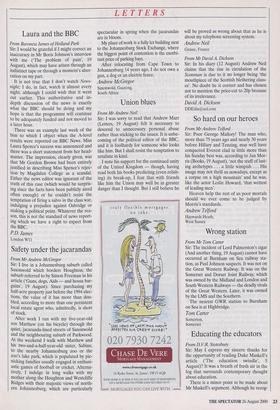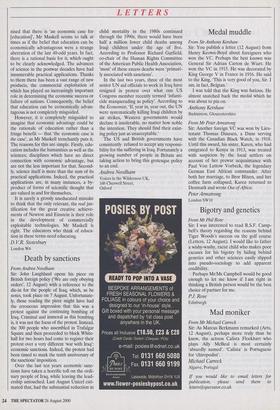Educating the educators
From D.V.R. Stotesbuty Sir: May I express my sincere thanks for the opportunity of reading Duke Maskell's article (The education swindle', 5 August)? It was a breath of fresh air in the fog that surrounds contemporary thought about education.
There is a minor point to be made about Mr Maskell's argument. Although he recog-
LETTERS
nised that there is 'an economic case for [education]', Mr Maskell seems to talk at times as if the belief that education can be economically advantageous were a strange aberration of the last 40-odd years. In fact, there is a rational basis for it, which ought to be clearly acknowledged. The advances of science in the postwar decades have had innumerable practical applications. Thanks to them there has been a vast range of new products, the commercial exploitation of which has played an increasingly important role in determining the economic success or failure of nations. Consequently, the belief that education can be economically advan- tageous is not completely misguided.
However, it is completely misguided to imagine that economic advantage could be the rationale of education rather than a fringe benefit — that 'the economic case is the case', as Mr Maskell trenchantly puts it. The reasons for this are simple. Firstly, edu- cation includes the humanities as well as the sciences; disciplines which have no direct connection with economic advantage, but are not the less important for that. Second- ly, science itself is more than the sum of its practical applications. Indeed, the practical applications are, in many instances, a by- product of forms of scientific thought that are valued in and for themselves.
It is surely a grossly uneducated mistake to think that the only relevant, the real jus- tification for the great creative achieve- ments of Newton and Einstein is their role in the development of commercially exploitable technologies. Mr Maskell is right. The educators who think of educa- tion in these terms need educating.
D.V.R. Stotesbtay
London W6



























































 Previous page
Previous page